ABOUT THE AUTHOR
James F. Pontuso is William W. Elliott Professor of Political Science at Hampden-Sydney College in Virginia. He is author of Assault on Ideology: Solzhenitsyns Political Thought (Lexington Books, 2004), coauthor with Roger Barrus, et al., of The Deconstitutionalization of America: The Forgotten Frailties of Democratic Rule (Lexington Books, 2004), and editor of Political Philosophy Comes to Ricks: Casablanca and American Civic Culture (Lexington Books, forthcoming).
VCLAV HAVEL
20th Century Political Thinkers
Series Editors: Kenneth L. Deutsch and Jean Bethke Elshtain
Raymond Aron: The Recovery of the Political
by Brian C. Anderson
Jacques Maritain: The Philosopher in Society
by James V. Schall
Martin Buber: The Hidden Dialogue
by Dan Avnon
John Dewey: Americas Philosopher of Democracy
by David Fott
Simone Weil: The Way of Justice as Compassion
by Richard H. Bell
Gandhi: Struggling for Autonomy
by Ronald J. Tercheck
Paul Ricoeur: The Promise and Risk of Politics
by Bernard P. Dauenhauer
Carl Schmitt: The End of Law
by William E. Scheuerman
Eric Voegelin: In Quest of Reality
by Thomas W. Heilke
Yves R. Simon: Real Democracy
by Vukan Kuic
Jrgen Habermas: A Philosophical-Political Profile
by Martin J. Beck Matutk
Aleksandr Solzenhenitsyn: The Ascent from Ideology
by Daniel J. Mahoney
Charles Taylor: Thinking and Living Deep Diversity
by Mark Redhead
Vclav Havel: Civic Responsibility in the Postmodern Age
by James F. Pontuso
ROWMAN & LITTLEFIELD PUBLISHERS, INC.
Published in the United States of America
by Rowman & Littlefield Publishers, Inc.
A wholly owned subsidiary of The Rowman & Littlefield Publishing Group, Inc.
4501 Forbes Boulevard, Suite 200, Lanham, Maryland 20706
www.rowmanlittlefield.com
PO Box 317
Oxford
OX2 9RU, UK
Copyright 2004 by Rowman & Littlefield Publishers, Inc.
All rights reserved . No part of this publication may be reproduced, stored in a retrieval system, or transmitted in any form or by any means, electronic, mechanical, photocopying, recording, or otherwise, without the prior permission of the publisher.
British Library Cataloguing in Publication Information Available
Library of Congress Cataloging-in-Publication Data
Pontuso, James F.
Vclav Havel : civic responsibility in the postmodern age / James F. Pontuso.
p. cm. (20th century political thinkers)
Includes bibliographical references and index.
ISBN 0-7425-2255-5 (cloth : alk. paper) ISBN 0-7425-2256-3 (pbk. : alk. paper)
1. Havel, VclavContributions in political science. 2. Political sciencePhilosophy. 3. Responsibility. 4. Havel, Vclav. 5. Czech RepublicPolitics and government1993
I. Title. II. Series.
JC273.H37P66 2004
943.7105092dc22
2004003265
Printed in the United States of America
 The paper used in this publication meets the minimum requirements of American National Standard for Information SciencesPermanence of Paper for Printed Library Materials, ANSI/NISO Z39.48-1992.
The paper used in this publication meets the minimum requirements of American National Standard for Information SciencesPermanence of Paper for Printed Library Materials, ANSI/NISO Z39.48-1992.
For Rosalind, a dear friend
PREFACE
I n 1993 I was on a Fulbright grant in Prague lecturing to Charles University students about the American presidency. One student asked me to name the best president I had ever lived under. I gave a flippant answer, hoping for a laughVclav Havel, I said. Later I thought about it and decided that I had been right. This book is an effort to prove my claim.
Of course, Vclav Havel cannot be counted as a great political leader. The opportunities for him to shape world events were limited by the institutional weakness of the Czech presidency and the size of the Czech Republic. But despite these handicaps, Havel cast a long shadow, partly because of the multidimensional character of his life. He has been at various times a playwright, a dissident, a philosopher, and a president. In all those roles, he has exhibited extraordinary determination, originality, irony, and humor. What was perhaps even more impressive was Havels dedication to the principle of individual responsibility. Havels greatness resides in his being a spokesman for, and an exemplar of, the highest and therefore the most difficult kind of moral behavior.
This book is primarily about Havels ideas and his lifelong effort to defend and promote the principles of morally responsible action. But Havel is not only a thinker; he is also a man of action. Therefore, the book explores some of the events and issues that have shaped his life and tested his principles. I was attracted to this topic because I consider political science to be the study of how normative judgments relate to practical affairs.
As a teacher, I am sometimes bemused by the half-life of knowledge, how current eventsabout which almost everyone is awarequickly disappear into the mists of history. Thus, I must remind those who have forgotten and inform those who never knew that I wrote an overly brief and admittedly superficial biographical sketch of Vclav Havel. I trust that those who remember what was one of the hottest current events of the early 1990sHavels biographywill forgive me for trying to find the middle of the class.
Portions of this book were previously published as Transformation Politics: The Debate between Vclav Havel and Vclav Klaus on the Free Market and Civil Society, Studies in East European Thought , 54 (September 2002): 153177; Review Essay, Vclav Havel: A Political Tragedy in Six Acts , by John Keane, Society 39 (July/August 2002): 80, 8187; The Political Philosophy of Vclav Havel, Critical Review of International Social and Political Philosophy 5 (Spring 2002): 4381; and Havels Vanek Plays: Disobedience and Responsibility, Perspectives on Political Science 34. I appreciate the permission to reprint them in this book.
I have selfish reasons for being grateful that the Cold War is over: I have been fortunate to meet and learn from a wonderfully literate group of Central Europeans. I extend my gratitude to all of them for putting up with what must have seemed like an unending series of questions. My appreciation goes to Slavenka Drakulic, Dan Draghici, Valria Hegyi, Hedi Hegyi, Paul Anghel, Mihaela Mihailescu, Krysztof Jasiewicz, Pavel Mertlk, Irena Sklenar, Jiri Sklenar, Pavla Cejnkova, Petr Kadlec, Milos Calda, Jakub Franek, Pavel Ripka, Jan Skaloud, Rudolph Kuera, and Jan Sokol. Special thanks to Viktor Janis for translating much-needed materials. Hanka Ripkov, director of the Czech Fulbright Commission, honored me twice by selecting me to teach in her elegant city. Alena Hromdkov, former spokesperson for Charter 77, offered an insiders view of the life of a dissident and introduced me to many interesting people.
The Committee for Professional Development at Hampden-Sydney College provided generous financial support. I would also like to thank the late Steva Freiden for first piquing my interest in Central Europe. James Angresano, former educational director of the Civic Education Project, helped acclimate me to the post-Communist world. Tobias Wolny, former foreign policy advisor to President Havel, provided firsthand recollections of his bosss intellect, integrity, and wit. Mary Carpenter at Rowman & Littlefield encouraged me to undertake this project. Aviezer Tucker, with whose interpretation of Havel I occasionally disagree, generously corrected some of my more egregious errors. Rosalind Warfield-Brown went above and beyond the responsibilities of a friend to edit the manuscript. Marie Balestra and Carolyn Moscatel gave me moral support, as they have done all their lives.
I would most especially like to thank Anne M. Pontuso, who, both in her professional role as a nurse and in her private life with her family, has pursued the highest ideals of responsibility detailed in this book.


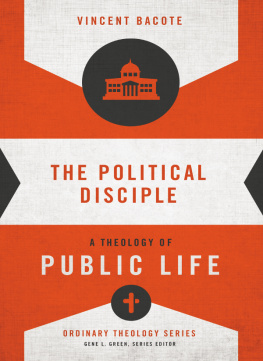
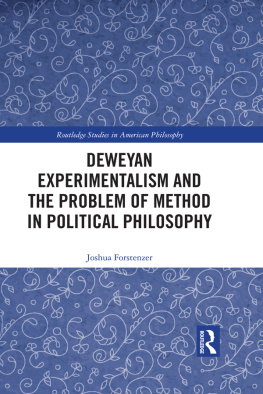
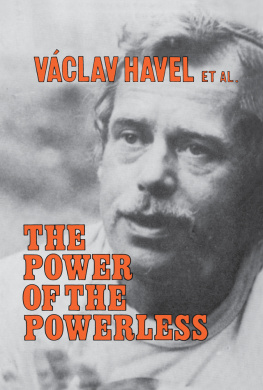
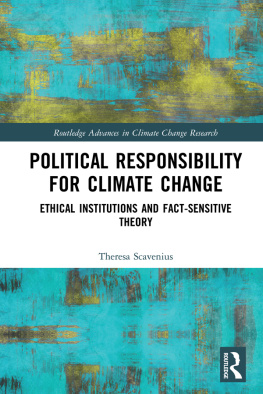
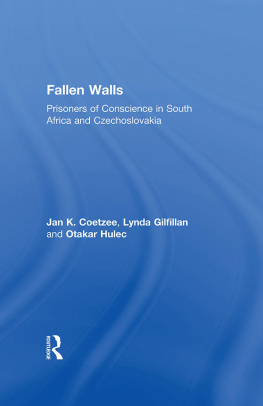
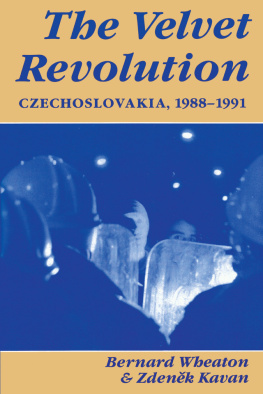
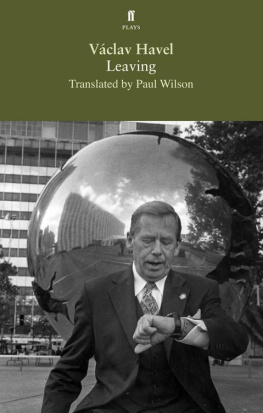
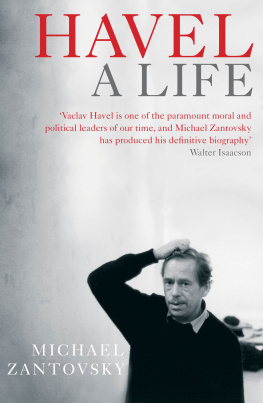
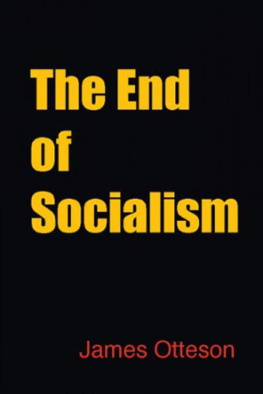
 The paper used in this publication meets the minimum requirements of American National Standard for Information SciencesPermanence of Paper for Printed Library Materials, ANSI/NISO Z39.48-1992.
The paper used in this publication meets the minimum requirements of American National Standard for Information SciencesPermanence of Paper for Printed Library Materials, ANSI/NISO Z39.48-1992.